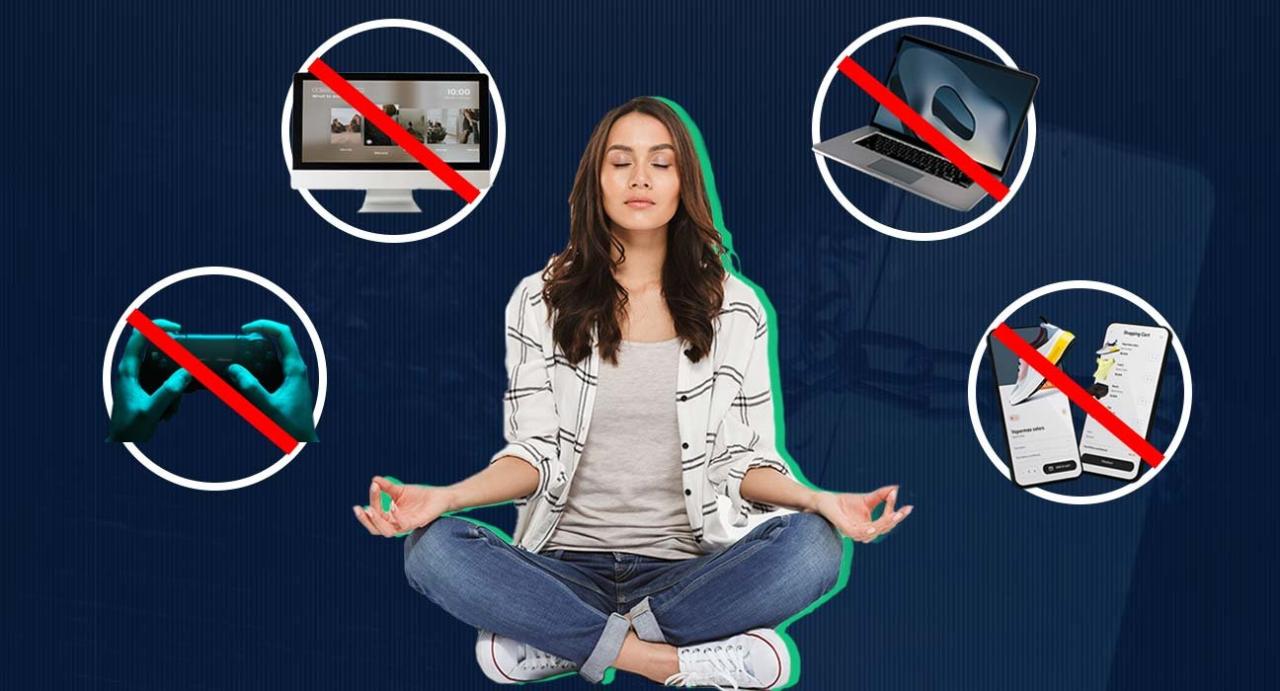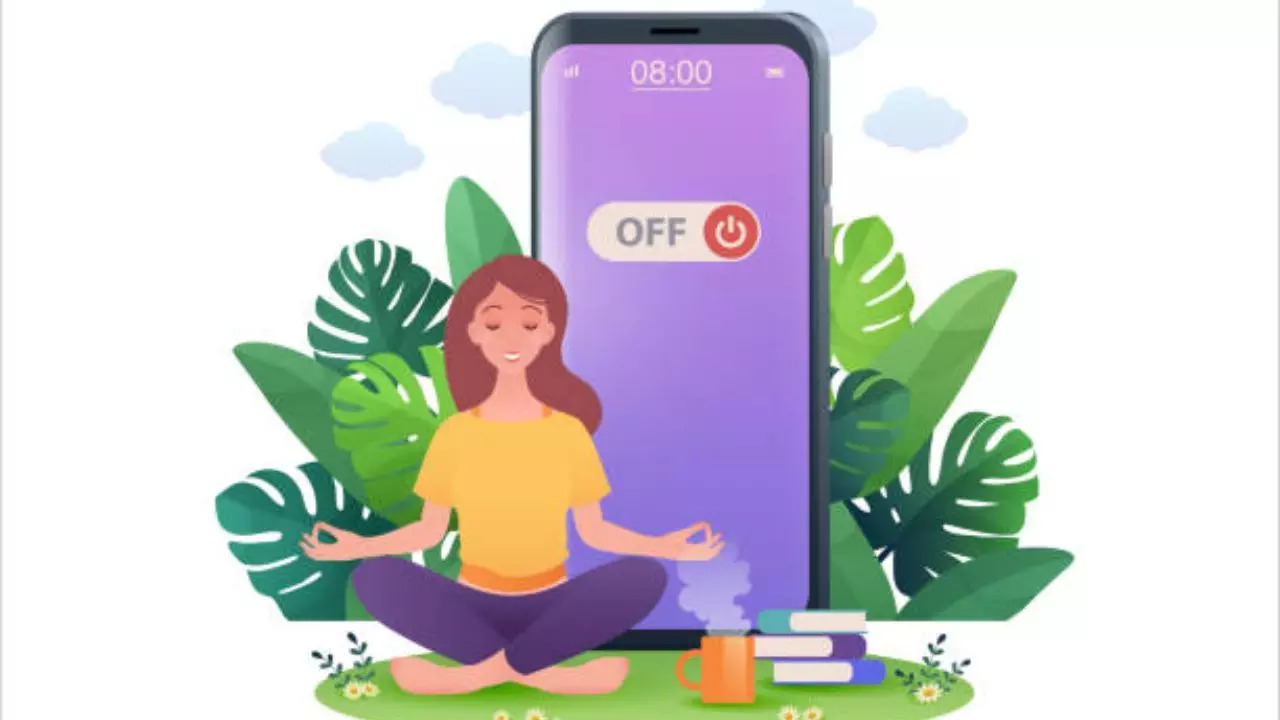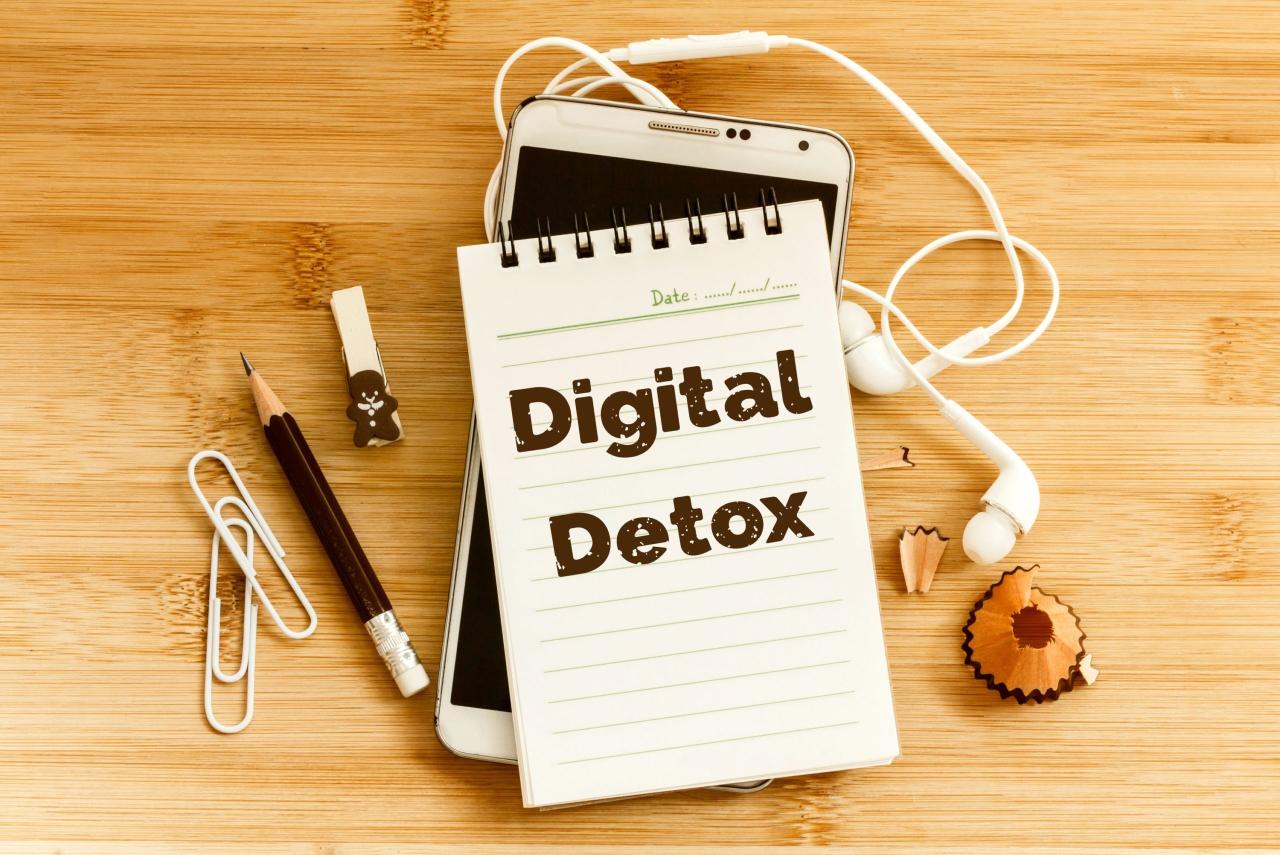Digital detox: Why your digilife needs a break

Kicking off with Digital detox: Why your digilife needs a break, this opening paragraph is designed to captivate and engage the readers, setting the tone casual formal language style that unfolds with each word.
The content of the second paragraph that provides descriptive and clear information about the topic
Introduction to Digital Detox

A digital detox refers to the period of time during which an individual refrains from using digital devices such as smartphones, computers, and tablets. It involves disconnecting from the constant distractions of technology to focus on real-life interactions and experiences.
Taking a break from digital devices is important for both our physical and mental well-being. Excessive screen time has been linked to a variety of health issues, including eye strain, poor posture, and disrupted sleep patterns. Moreover, constant exposure to social media and online content can lead to feelings of anxiety, depression, and loneliness.
Screen Time Statistics and Impact on Mental Health
- On average, people spend over 4 hours a day on their smartphones alone, leading to a total of about 28 hours per week of screen time.
- Excessive screen time has been associated with increased levels of stress, decreased attention span, and a higher risk of developing mental health disorders.
- Research has shown that taking regular breaks from digital devices can improve focus, boost productivity, and enhance overall mental well-being.
Signs You Need a Digital Detox

Feeling overwhelmed by technology is a common issue in today's digital age. Here are some signs that indicate you may need a break from your devices:
Decreased Productivity
- Struggling to focus on tasks due to constant distractions from notifications.
- Frequently multitasking on different screens, leading to lower quality work.
- Feeling fatigued and unmotivated after spending extended periods of time on digital devices.
Physical and Mental Health Effects
- Experiencing headaches, eye strain, and poor posture from prolonged screen time.
- Sleep disturbances caused by exposure to blue light emitted by screens before bedtime.
- Anxiety and stress related to constantly being connected and reachable.
Social Withdrawal
- Preferring online interactions over face-to-face communication with friends and family.
- Feeling isolated or disconnected when not engaging with social media or messaging apps.
- Struggling to maintain meaningful relationships due to excessive screen time.
Benefits of Digital Detox
Reducing screen time through a digital detox can have numerous positive effects on our overall well-being and quality of life.
Improved Mental Well-being
A digital detox can significantly improve mental health by reducing stress, anxiety, and feelings of being constantly overwhelmed. Constant exposure to screens and digital devices has been linked to increased levels of stress and mental fatigue. Taking a break from technology allows our minds to rest, recharge, and focus on the present moment.
Enhanced Relationships
Unplugging from our devices can greatly enhance the quality of our relationships with others. When we are constantly glued to our screens, we may miss out on meaningful interactions with friends and family. By disconnecting from technology, we can fully engage with the people around us, communicate more effectively, and strengthen our connections.
Strategies for a Successful Digital Detox
In today's digital age, it can be challenging to disconnect from our devices and take a break from screens. However, implementing strategies for a successful digital detox is essential for our overall well-being and mental health.
Reducing Screen Time
- Set specific time limits for screen usage each day.
- Use apps or tools to track and manage your screen time.
- Create tech-free zones in your home, such as the bedroom or dining area.
- Implement a "no phones at the dinner table" rule to encourage face-to-face interactions.
Creating a Healthy Balance with Technology
- Practice mindfulness and be present in the moment without distractions.
- Engage in regular physical activities or hobbies that do not involve screens.
- Schedule designated times for checking emails and social media to avoid constant connectivity.
- Establish boundaries with work-related technology use during personal time.
Activities to Replace Digital Usage During a Detox
- Read a physical book or magazine instead of scrolling through your phone.
- Go for a walk or hike in nature to disconnect and recharge.
- Engage in creative activities like drawing, painting, or crafting.
- Practice mindfulness meditation to calm the mind and reduce stress.
Impact of Digital Detox on Physical Health
Digital detox can have a significant impact on physical health by addressing the negative effects of excessive screen time. By reducing the time spent staring at screens, individuals can improve their overall well-being and prevent various health issues.
Benefits of Reducing Eye Strain and Posture Issues
- Decreased eye strain: Constantly looking at screens can lead to eye fatigue, dryness, and discomfort. Taking a break from digital devices allows the eyes to rest and recover, reducing the risk of developing long-term eye problems.
- Improved posture: Prolonged sitting and hunching over screens can result in poor posture, leading to back and neck pain. Engaging in activities away from screens during a digital detox can help individuals maintain better posture and prevent musculoskeletal issues.
Tips for Incorporating Movement and Exercise during a Digital Detox
- Set regular breaks: Take short breaks every hour to stretch, walk around, or do simple exercises to counteract the effects of prolonged screen time.
- Outdoor activities: Spend time outdoors engaging in physical activities such as walking, jogging, hiking, or biking to improve circulation and overall fitness.
- Yoga and stretching: Incorporate yoga or stretching routines into your daily digital detox to improve flexibility, relieve tension, and enhance physical well-being.
Mental Health Benefits of Digital Detox
Taking a break from digital devices and social media can have a positive impact on your mental health by improving focus and reducing stress and anxiety.
Improved Focus and Concentration
A digital detox allows your brain to take a break from constant stimulation, which can help improve focus and concentration. Without the distractions of notifications and endless scrolling, you can train your brain to focus on tasks for longer periods of time.
Impact of Social Media on Mental Health
Social media has been linked to increased feelings of anxiety, depression, and loneliness. The constant comparison to others, cyberbullying, and the pressure to present a perfect image online can take a toll on mental well-being.
Reduced Stress and Anxiety
Disconnecting from digital devices can reduce stress and anxiety levels. Constant exposure to news updates, work emails, and social media can overload your brain and contribute to feelings of overwhelm. Taking a break allows you to reset and recharge, leading to a calmer state of mind.
Incorporating Mindfulness into Digital Detox

Practicing mindfulness during a digital detox can significantly enhance the overall experience by helping individuals stay present, reduce stress, and improve overall well-being. Mindfulness allows us to be more aware of our thoughts, emotions, and surroundings, leading to a deeper connection with ourselves and the world around us.
Techniques for Practicing Mindfulness During a Digital Detox
- Awareness of Breath: Focus on your breath as you inhale and exhale. This simple technique can help anchor you to the present moment.
- Body Scan: Take a few minutes to scan your body from head to toe, noticing any areas of tension or discomfort. This can help release physical stress and promote relaxation.
- Mindful Walking: Pay attention to each step you take, the sensations in your feet, and the sounds around you. Walking mindfully can help clear the mind and improve concentration.
Importance of Mindfulness in Reducing Screen Time
Mindfulness can help individuals become more aware of their screen usage habits and the impact it has on their well-being. By practicing mindfulness, individuals can make conscious choices to limit screen time and prioritize activities that nurture their mental and physical health.
Examples of How Mindfulness Can Enhance the Detox Experience
- Increased Self-Awareness: Mindfulness can help individuals become more in tune with their emotions, thoughts, and behaviors, leading to a deeper understanding of themselves.
- Improved Focus and Concentration: By practicing mindfulness, individuals can enhance their ability to concentrate on tasks and activities without the distractions of digital devices.
- Stress Reduction: Mindfulness techniques can help reduce stress levels and promote a sense of calm and relaxation during a digital detox.
Last Recap
The content of the concluding paragraph that provides a summary and last thoughts in an engaging manner
Query Resolution
What is a digital detox?
A digital detox involves taking a break from digital devices to reduce screen time and improve overall well-being.
How can excessive screen time affect productivity?
Excessive screen time can lead to distractions, reduced focus, and decreased efficiency in tasks.
What are the benefits of reducing screen time through a digital detox?
Reducing screen time can improve mental well-being, enhance relationships, and increase productivity.
How can mindfulness be incorporated into a digital detox?
Mindfulness can help reduce screen time by promoting awareness of digital usage habits and encouraging intentional breaks from technology.

